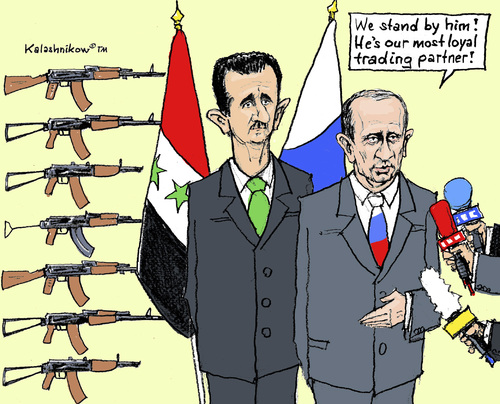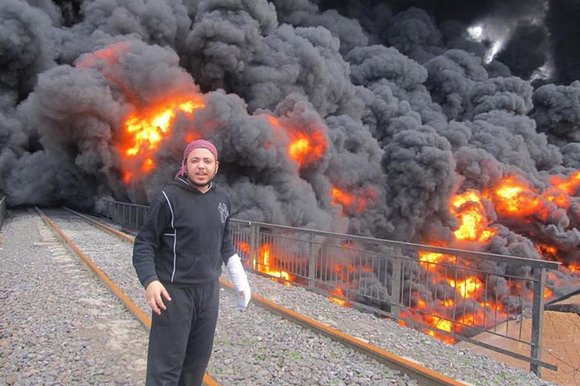Andrew Jillions joins JiC for another thought-provoking guest post on responses to the ongoing humanitarian crisis in Syria. Enjoy!
Kofi Annan was in New York yesterday to brief the Security Council on the mess that is Syria. But whatever (limited) hopes there might be of his ability to negotiate an end to the violence, the humanitarian mission also disguises a depressing reality: short of appeasement, the international community has no good strategy for responding to a well-protected regime intent on committing criminal acts.
Debates on what to do about Syria have – on the surface at least – moved on apace since the China/Russia veto last month (which was, in any case, over-hyped). Everyone seems to agree that Bashar al-Assad needs to stop killing and torturing civilians. As Ban Ki Moon put it on the anniversary of the uprising, “the status quo in Syria is indefensible”. In the rarefied domain of international politics, the widespread acceptance of this point counts as a victory. But beyond this limited solidarity, there is scant agreement over what practical steps to take.
The key obstacle to intervention is the fact that al-Assad’s regime is protected, in large part, by the presence of an unconvincing opposition. Even if a unified opposition could be mustered up, potentially through foreign support, the worry remains that this would splinter as soon as their one point of agreement – regime change – was achieved. Getting rid of al-Assad with no viable alternative in place will usher in an era of violent disorder and instability.
It is possible, as Steven Cook argues, that this chaotic outcome isn’t quite as certain as the anti-interventionists suggest. As I’ve previously argued, there is something devious about discounting intervention on the basis of an imagined and uncertain level of future chaos and bloodshed – using the “unknown unknowns” as good reasons not to act. In the meantime, real people are dying in real time. The footage is there for all to see.
This is all beside the point in the current diplomatic climate. The inscrutable message is that al-Assad must go – as Obama put it, “it’s not a question of if, but when” – but also that military intervention is not a viable option, fomenting a Syrian civil war is not a desirable option. The hope seems to be that al-Assad can be put under enough pressure by rebel forces, by his own government ministers, and by the international community that he can be convinced to willingly step down.
This best-case scenario is unlikely to happen. First, al-Assad is in a good position to crush the opposition, never mind giving into their demands. In short, he has learned the authoritarian ropes. There is a paternal precedent for him to draw on as well, with his father’s brutal putdown of the 1982 Hama uprising, a sterling example of how to ensure his regime survives. Second, despite some hope that his regime will crumble from the inside as ministers and military officers defect, real power is highly centralized and there are no signs as yet of either the governing core or the officer classes being motivated to do anything but crush the opposition. Third, there is no reason to think that any of the international community’s pressure will touch al-Assad. The “smart” sanctions designed to isolate Assad are historically more likely to deepen the people’s suffering instead. Apart from some minor angst betrayed in emails to his wife, he looks remarkably untroubled by events.
Turkey is the one country that could force intervention into the limelight – and their calls for a “buffer zone” inside Syria to help stabilize the flow of refugees demonstrates that if the violence continues there may be scope for some kind of limited military incursion or peacekeeping force. But even within this scenario, there is little support for regime change as a realistic endgame. Any proposal that centres on getting rid of Assad – or bringing him to trial – will open up existing divides over the priority of peace and stability versus justice.
So unless a credible opposition can be manufactured – for example getting behind the Syrian National Council as a workable alternative, similar to the Libyan TFG, and beginning a broad and inclusive constitutional conversation – and regime change is seriously considered, it continues to look as if the international strategy centres on some form of appeasement. After estimates of more than 8,000 dead – including more killed in Raqqah, while Annan was briefing the Security Council – there is still no appetite for intervention. Instead, Bashar al-Assad gets to stay in power if he stops killing and torturing civilians. In this context calls for justice are resoundingly hollow.




Great blog. Thanks. It seems to me that Assad belives he has an option to stay in power even if he does not stop killing civilians. I worry that he sees no credible threat right now from the international community. The emails seem to support that.
Thanks for that, and I think you’re absolutely right: Assad doesn’t view the international community as a credible threat. His coterie of Western educated advisors seems to have helped him read the international community’s red lines pretty well. But I’m not sure that the international community has done anything yet that they deserve to be taken seriously. There aren’t a lot of positive options for policy makers here but I think the first step is to show a genuine commitment to moving beyond mere rhetorical condemnation, moving the read lines to encompass intervention. Who know what might happen then . . .
One further thought. Its worth noting that in the event that a humanitarian truce is negotiated and Assad manages to cling onto power, its only the public face of violence that’s likely to stop. The security services will be working overtime behind the scenes, doing what they do best: disappearances and torture.
Pingback: Appeasement and Syria « Another Foreign Policy Blog